Hubei’s ice and snow tourism has become a hot spot for cultural tourism consumption during the New Year holiday.
After Yang Ming left, Guo Ailun announced his sad decision in the middle of the night, and netizens blessed him one after another, and Liao Lan feared regret.
On September 18th, Beijing time, the Liaoning men’s basketball team has lost their best and meritorious coach in the past three years, Yang Ming, who won three championships and one Asian perfect score for the team.
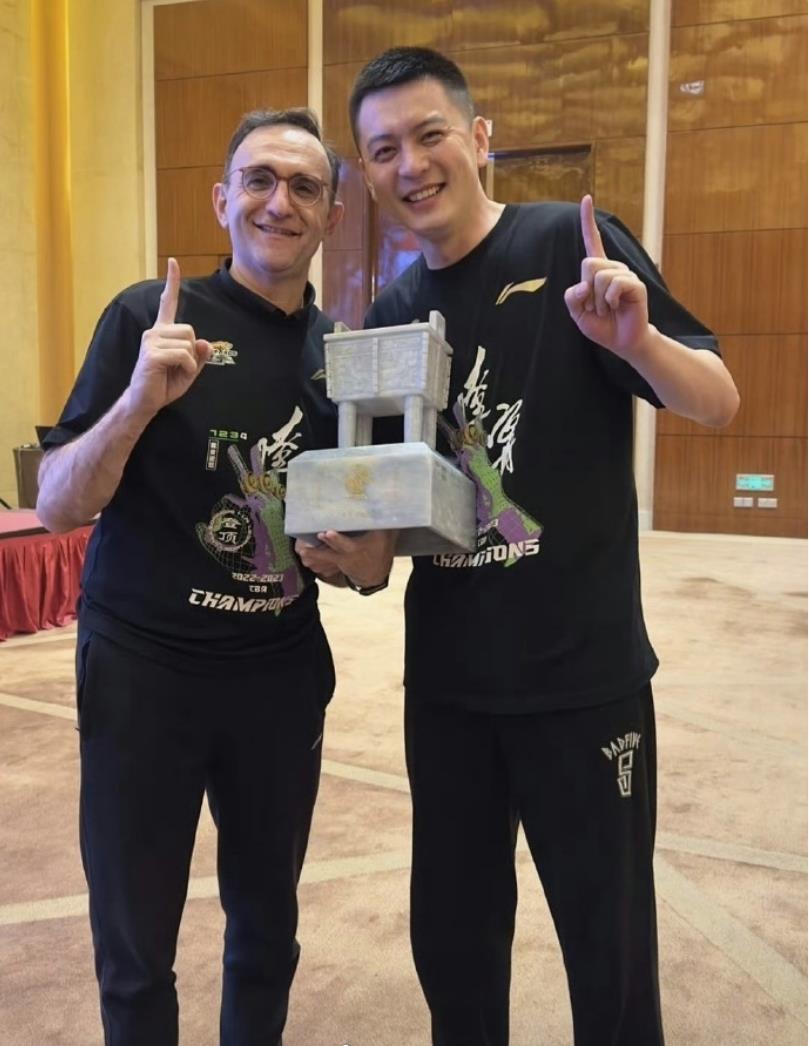
At midnight, we witnessed a player with the deepest affection for Yang Ming send him a farewell, that is, Guo Ailun. The affection between Guo Ailun and Yang Ming is really deep. Compared with Zhao Jiwei and others, he worked with Yang Ming for a longer time. When his teammates all sent their blessings, Guo Shaoyi kept silent.
But now it turns out that he may not have digested the emotion of seeing Yang Ming leave, and his heart must be mixed and very sad, so Guo Ailun is the latest to make a statement. In the middle of the night, Guo Ailun gave Yang Ming such a sentence: "13 years of comrades-in-arms, hug, Kiss kiss."
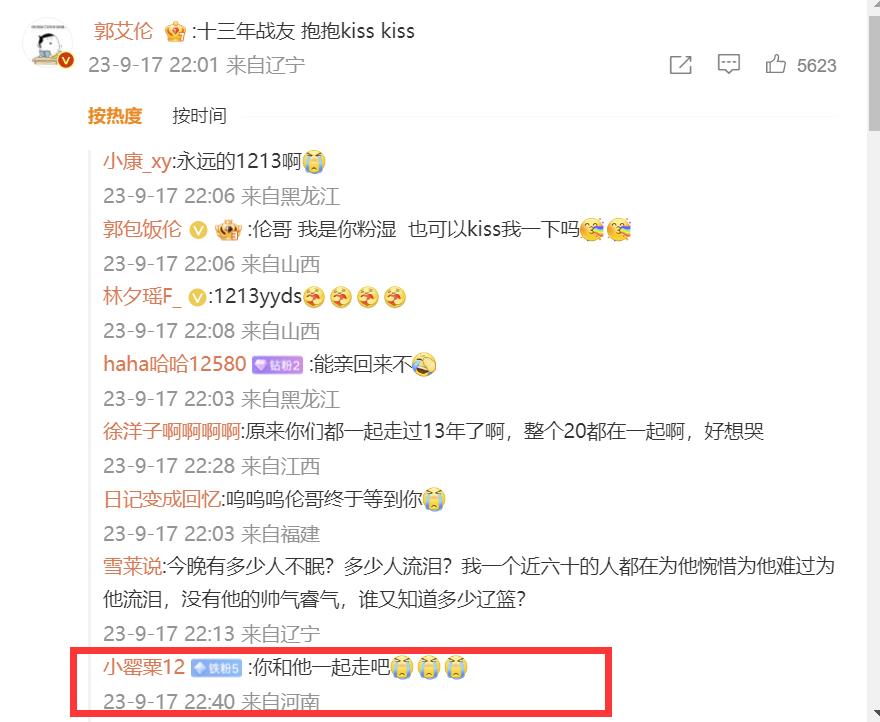
Although there are only nine short words, you can feel the affection between Guo Ailun and Yang Ming. It is no wonder that at the time of the championship ceremony, Guo Ailun went directly to Yang Ming’s collar with champagne to celebrate. We compared the last time Liaoning men’s basketball team won the championship. At that time, Guo Ailun seemed very calm, very calm, and even a little lost. He said that winning the championship was nothing special, and he felt very dull, and he didn’t feel this kind of excitement.
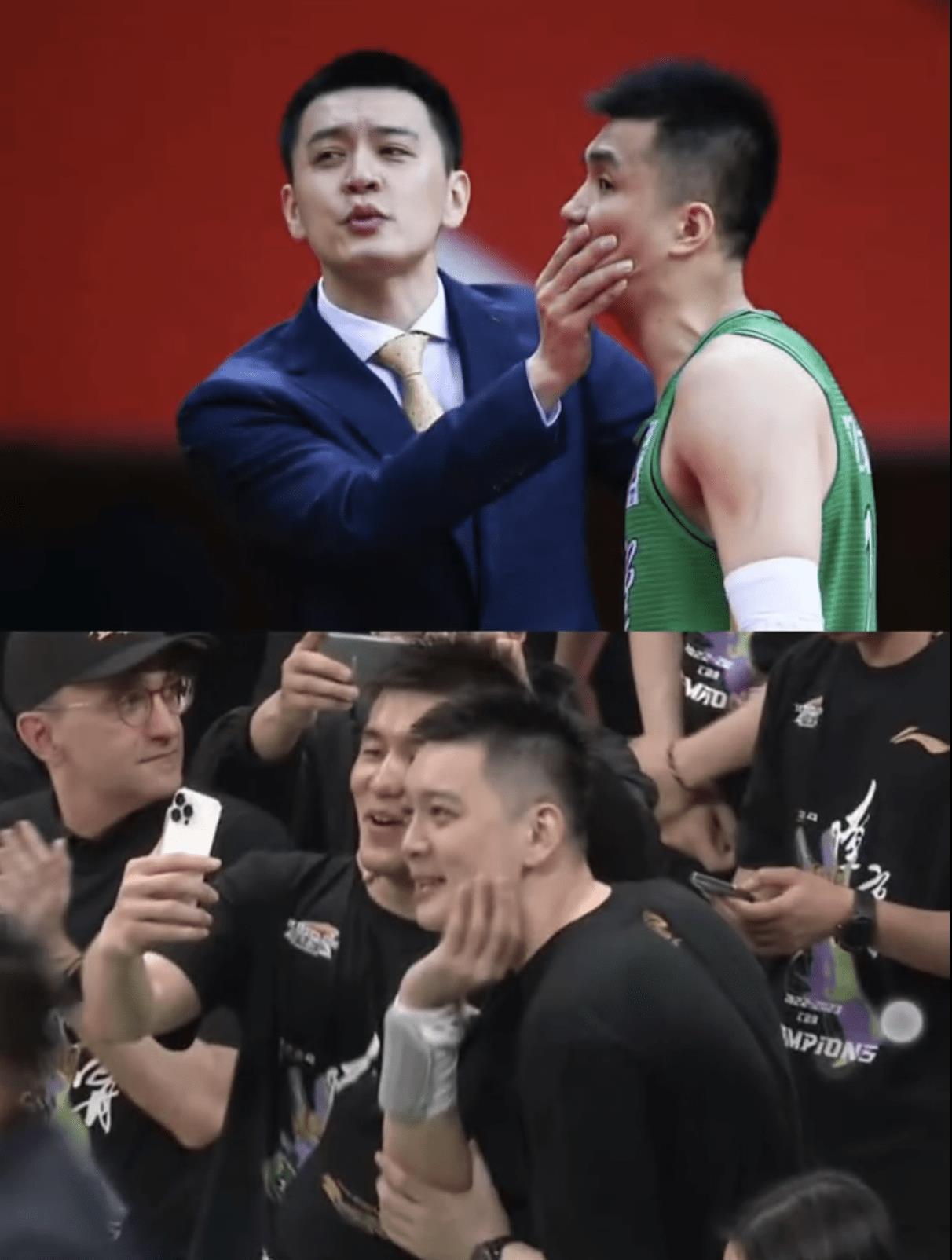
This season, according to the contribution from the field, Guo Ailun’s contribution is actually not greater than the last time he won the championship, because he missed three of the four finals games this time, so he went up for five minutes at the last minute of the third game and gave a performance to the fans. He didn’t attack or score. He scored 24 points after going to the fourth game and played well.
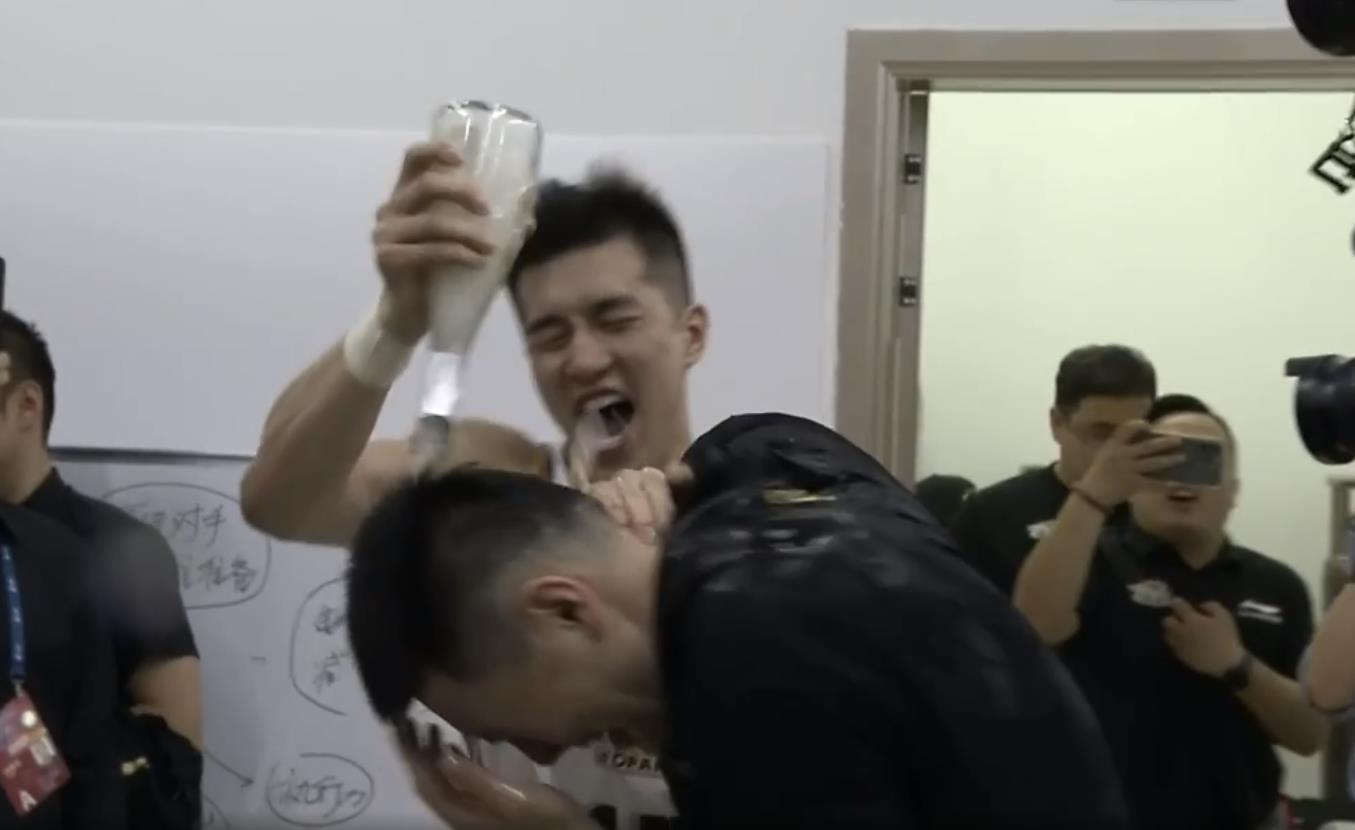
Only one of the four games contributed, which was completely different from the time when he won the championship the previous year. But this time, he was very excited and had been interacting with Yang Ming. The two of them were still taking various selfies. It seems that he may have expected Yang Ming’s departure. For this situation now, Guo Ailun is absolutely empathetic in his heart. At one time, he also had the idea of leaving the Liaoning men’s basketball team, and it was also very stiff at that time, which even led to Xinhua News Agency’s personal statement. He released the news that he wanted to go through this authoritative official media.
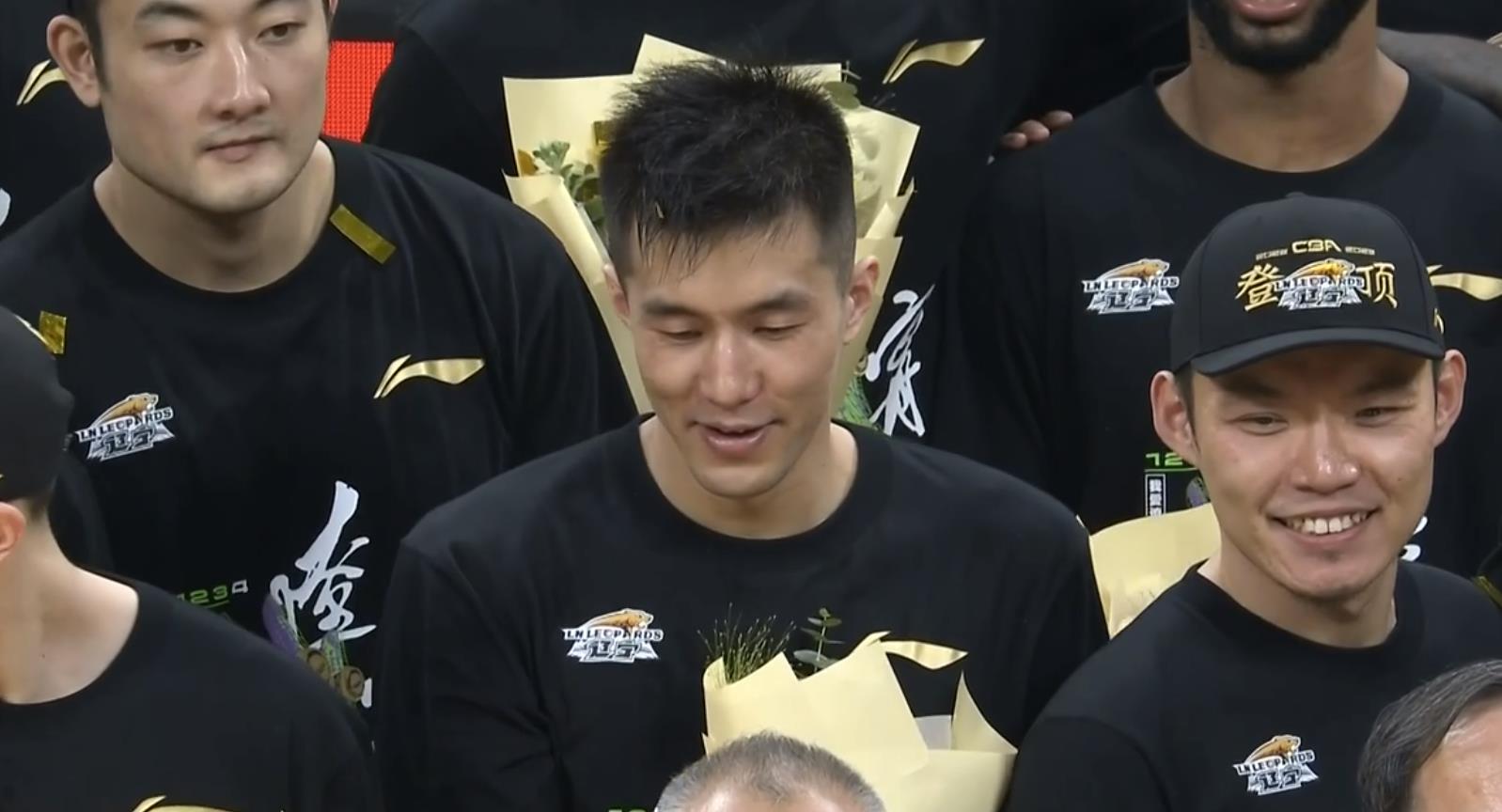
Some netizens shouted: "You leave with Yang Ming." "Leave the Liao basket, there is nothing to miss." Now that the Liaoning men’s basketball team doesn’t want coach Yang Ming, you might as well leave, which just breaks their last thought about the Liaoning basketball team. Guo Shiqiang left, Yang Ming left, and if Guo Ailun left again, it should be said that an era of Liaoning men’s basketball team is completely over. Of course, Guo Ailun didn’t reply to this netizen’s words, but he could feel that when netizens sent a blessing, some of them were dissatisfied with Liaoning’s decision that they didn’t understand or support it.
The last straw! Apply for a transaction! Resolutely leave the stag
How long has it been since you heard Ibaka’s name? At present, he is still a free agent and nobody cares! Recently, Ibaka talked about the situation in the Bucks last season in an interview. He is still very dissatisfied: "I don’t want more playing time when I leave the Bucks. What I want is communication. You should tell me in advance whether I will play or not."

Ibaka pointed the finger at coach Buden holzer: "Before joining Bucks, the coach told me that I wouldn’t have much playing time. I know that, and I will be ready to play. When Dallo and Portis were injured, you refused to let me play.When they came back from injury, you suddenly called me on, and I hadn’t played for three weeks."

Ibaka went on to say, "Will you fight or not? Have no communication with me beforehand! I can’t stand this, I can’t stand it, apply for a transaction. " In the offseason in 2022, Ibaka signed the Bucks for $2.91 million a year.I haven’t played since January 4 this year. On February 10th, Ibaka was sent to the Pacers by the Bucks and was immediately laid off.

In the 2022-23 season, Ibaka played only 16 games in the Bucks, averaging 11.6 minutes per game.Only got 4.1 points and 2.8 rebounds, with three hit rates: 48.1%, 33.3% and 61.5%.On January 11th, the reporter asked Ibaka, "What role did Coach Buden ask you to play in the team?" Ibaka replied, "Which coach? I have no comment. "

Ibaka also compared Tyrone Lu with Buden holzer: "I was not like this when I was on the Clippers (2021-22 season), and I respected Lu’s guidance very much.He will call me in the morning and say that he will give young people more opportunities this week, and I will answer no problem at all. No matter what happens, Tyrone Lu will communicate with me in advance."
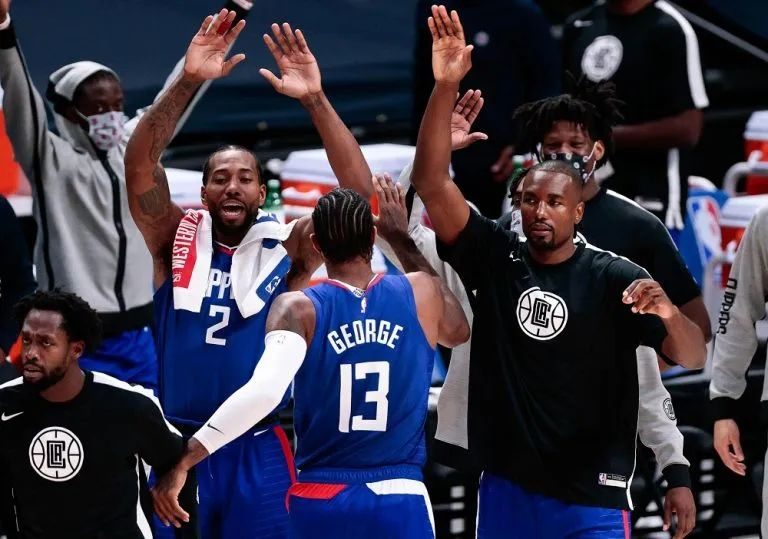
In fact, Ibaka’s appeal is also very simple: let me know in advance whether I am allowed to play or not. Obviously, Buden didn’t do it. He probably felt that Ibaka was dispensable in the team and didn’t give the veteran enough respect. Last season’s regular season, although the Bucks ranked first in the league, Buden still finished class in May this year.

Ibaka was born on September 18th, 1989, and will turn 34 next month. The free market has been open for more than a month, and the big lists of each team are almost full. It is difficult for Ibaka to return to the NBA. Ibaka’s total salary in his career exceeds 140 million US dollars, and he can enjoy life completely. He has frequently attended fashion activities in the last six months.
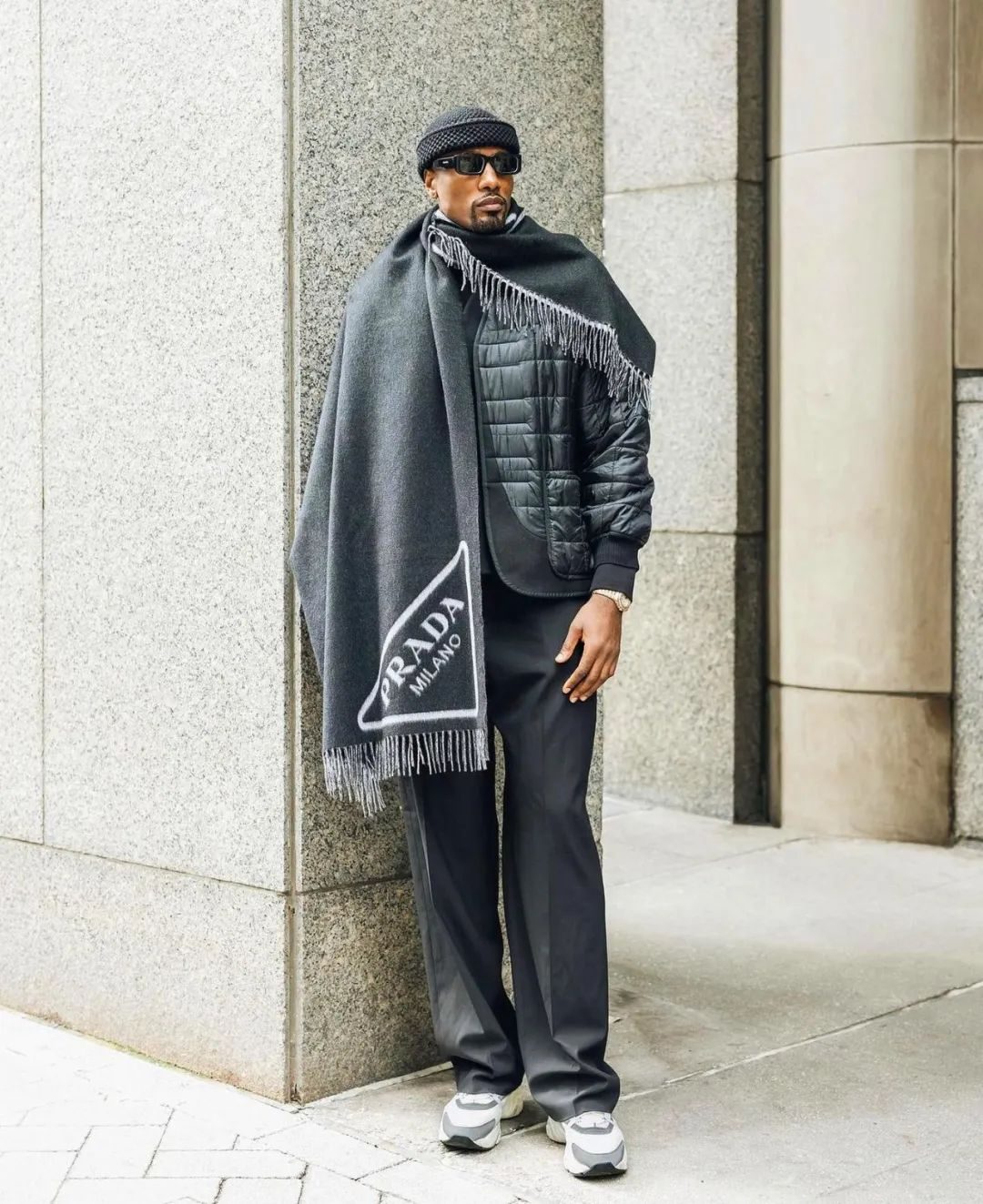
Ibaka signed two big contracts in his career:In 2012, Thunder was renewed for $48 million in four years; In 2017, the Raptors were renewed for $65 million in three years.In the 2018-19 season and 2019-20 season, he averaged 15+8 in the regular field for two consecutive years, which is worthy of an annual salary of 20 million! The entire NBA career averaged 12.2 points, 7.1 rebounds and 1.9 blocks!
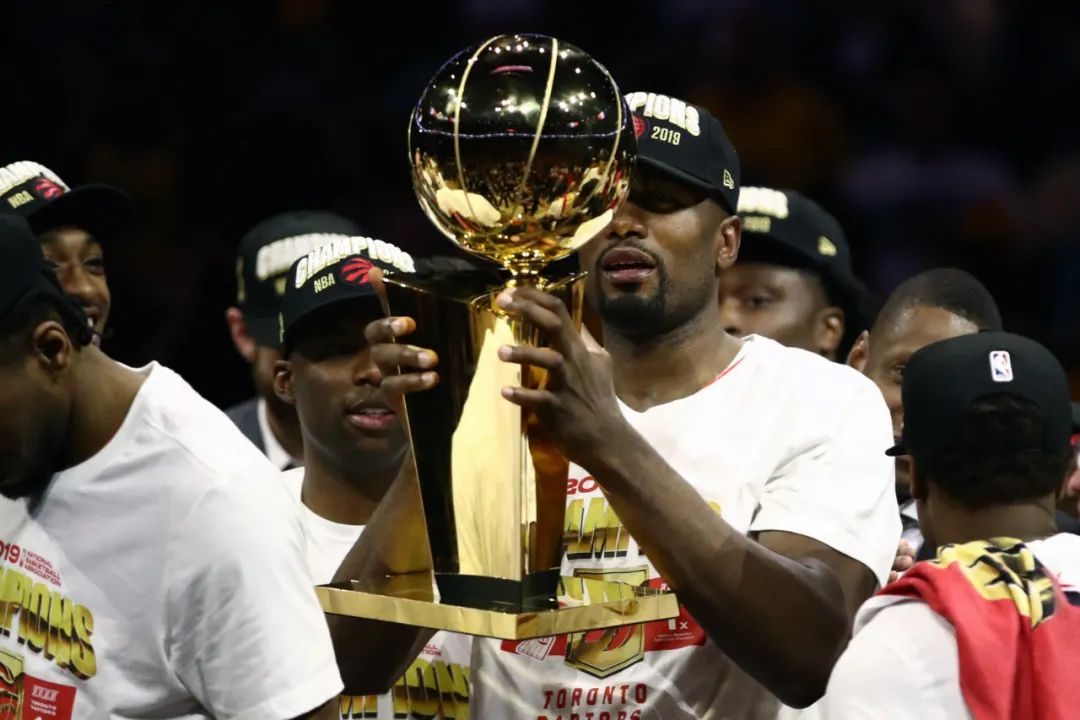
Ibaka won the blocked shot twice in the regular season and was selected as the best defensive team for a while three times! During the thunder, he was a blocking machine!3.7 blocks per game in 2011-12, 3 blocks per game in 2012-13 and 2.7 blocks per game in 2013-14.In 2014, Ibaka fought with injuries, which was a turning point in his career.

Ibaka should have had a better career! That thunder has also become the regret of many fans.

Epic deal, the Lakers offer Harden 5 for 1.

5 for 1, Harden will join the Los Angeles Lakers. Recently, according to American media reports, the Los Angeles Lakers made a deal negotiation with the management of the 76ers. They are willing to offer Hakimura, Vincent, Vanderbilt and Russell, as well as the second round of draft picks to get Harden, and the 76ers are also evaluating the deal, and it is expected that a consensus will be reached soon.
The presiding judge talks about the Beijing case in the work report of the Supreme Court.
Our reporter Feng Li reports from Beijing.
On the afternoon of March 7, the first session of the 14th National People’s Congress held its second plenary session in the Great Hall of the People, and Zhou Qiang, President of the Supreme People’s Court made a report on the Supreme People’s Court’s work to the General Assembly.
According to the reporter of China Business News, the report mentioned seven cases tried by the Beijing court, namely, the trademark right case of Wuchang Rice, the high-speed rail monopoly case, the pirated World Cup case, the bankruptcy reorganization case of Founder and Ziguang Group of Peking University, the case of collecting user information privately by social software, and the case of infringement of personality rights by AI companion software.
On the eve of the World Cup finals, the court ruled in time to stop the live broadcast of illegal matches.
The reporter of China Business News noted that the report mentioned that the healthy development of digital economy should be promoted according to law. The courts in Beijing, Tianjin and Shanghai banned the piracy of the Beijing Winter Olympics and the World Cup in time to promote the optimization of the digital culture market environment.
On the eve of the final in FIFA World Cup Qatar 2022 in 2022, an online company filed an application for behavior preservation, claiming that it was the copyright owner of FIFA World Cup Qatar 2022 in China, and had the exclusive right to broadcast the programs involved in the case through the information network in the form of live broadcast, delayed broadcast and on-demand, and had the right to permit or prohibit others from exercising the above rights in whole or in part.
Since the opening of FIFA World Cup Qatar 2022, a network company has continuously found that the mobile phone APP operated by a company in Beijing provides live viewing service of FIFA World Cup Qatar 2022 football match in the competition area, and users can watch the live broadcast of the World Cup match by clicking the live video. The Beijing Internet Court made a ruling according to law on the day it received the APPlication for behavior preservation in this case, and delivered it on the spot on the same day. After receiving the ruling, the respondent automatically fulfilled the obligations specified in the ruling and stopped the live broadcast of the World Cup on the mobile app it operated.
Zhu Ge, vice president of the First Court of Comprehensive Trial of Beijing Internet Court, told the reporter of China Business News that in recent years, the economy of sports events in China has shown a trend of rapid development, and the number of cases in which sports event-related rights holders applied for behavior preservation before or during litigation has been increasing. This case upholds a positive and prudent judicial attitude, promptly handles the application for behavior preservation put forward by the right holders of World Cup events, and makes a decisive ruling on behavior preservation according to law, strictly protecting the legitimate rights and interests of the right holders of sports events. In this case, the specific factors that should be considered in the application review of behavior preservation involving sports programs are deeply analyzed, hoping to provide reference for the trial of behavior preservation cases involving sports events.
Seven companies, including Ziguang Group, merged and reorganized in substance to help enterprises regenerate with the power of law.
As mentioned in the work report of the Supreme Law, 2,801 bankruptcy and reorganization cases were concluded, 3.4 trillion yuan of assets were revitalized, 3,285 enterprises were helped out of difficulties, and 923,000 employees were stabilized. A number of valuable and promising enterprises such as Founder of Peking University and Ziguang Group have been reborn through bankruptcy reorganization.
Ziguang Group, a subsidiary of Tsinghua University, is a leading enterprise in China’s "core cloud" industry with cloud network industry and integrated circuit industry as its main business. In November 2020, due to business losses and deterioration of financial indicators, a serious debt crisis broke out. In order to promote debt resolution through marketization and rule of law, on July 16, 2021, Beijing No.1 Intermediate People’s Court ruled to accept the reorganization case of Ziguang Group. On August 27th of the same year, it was ruled that seven companies, including Ziguang Group, were substantially merged and reorganized.
On December 29th, 2021, at the second creditors’ meeting, each voting group passed the draft reorganization plan by a high vote. On January 14, 2022, Beijing No.1 Intermediate People’s Court ruled to approve the reorganization plan. Thereafter, during the implementation of the reorganization plan, the reorganization implementation period is 6 months. On July 12th, the administrator submitted the Supervision Report on the Implementation of Reorganization Plan to the court. On July 13, Beijing No.1 Intermediate People’s Court ruled that the reorganization plan of substantive merger and reorganization of seven companies including Ziguang Group was completed, and the reorganization procedures of seven companies including Ziguang Group were terminated.
Through this judicial reorganization, 60 billion yuan of investment was introduced for Ziguang Group, more than 150 billion debts were smoothly resolved according to law, 298 enterprises in the group system were maintained for continuous operation, and more than 50,000 employees were stabilized, thus achieving the dual effectiveness of relieving difficulties and empowering rebirth.
Wang Lingfang, the presiding judge of this case and a judge of the Beijing No.1 Intermediate People’s Court, said in an interview with the reporter of China Business News that law advocates justice and law also helps the needy. The substantive merger and reorganization of seven companies of Ziguang Group is a typical example of applying the bankruptcy reorganization system to help China’s 100 billion-level high-tech enterprise groups with great industry influence to achieve rebirth, optimizing the business environment and effectively resolving the debt crisis. Large enterprise groups need creditors, investors and investors to seek common interests, the government and all walks of life to help each other, and the people’s courts need to uphold justice with the power of law, accept supervision openly and promote win-win with goodwill! Let us continue to escort the development of enterprises by law and jointly help the business environment to have a "temperature".
APP forcibly collects user portrait information, and the court determines infringement.
It is mentioned in the report that the prohibition of infringement of personality rights and the order of personal safety protection should be improved in the judicial policy to make personality rights more secure. The judicial interpretation of face recognition was introduced, and cases such as visual doorbell infringing on neighborhood privacy, scanning code to order food infringing on personal information, and social software collecting user information privately were tried to build a "firewall" for privacy and personal information protection.
When Luo used a software, he found that the software required users to fill in the contents such as "name", "occupation" and "English level" before logging in. He thought that his personal information rights and interests were infringed, so he sued the software operator to the court to stop the infringement and compensate for the losses. Software operators argue that collecting relevant labels is necessary to recommend appropriate service content for different users’ needs.
The Beijing Internet Court held that the scope necessary to perform the contract should be limited to the basic service functions provided by the software or network operators or the additional functions added by users on a selective basis. The software collection involved is not necessary to perform the contract, and the user’s consent should be obtained. The software involved requires the user to submit portrait information in the user’s first login interface, and there are no ways such as "skip" and "reject", which leads to the user having to check "agree" or submit corresponding information for the purpose of using the software. Such consent or the provision of personal information is forced or forced in disguised form when the subject of information is not free or voluntary, and cannot be regarded as valid consent. The defendant’s act of collecting user portrait information is not "necessary to fulfill the contract" and does not obtain the effective consent of the user, so it constitutes infringement. In the end, the court ruled that the defendant stopped the infringement and compensated for the losses.
Yan Jun, vice president of the Third Comprehensive Trial Court of Beijing Internet Court, told the reporter of China Business News that with the intelligent upgrade of network applications, collecting user portraits for personalized information push has become a common form of personal information processing, and it has also had a wide impact on people’s online life. This case applies the relevant provisions of the Civil Code, explores the specific standards for the collection of personal information, and makes it clear that the "consent" for the collection of personal information needs to be made freely and voluntarily by users, so as to fully guarantee the users’ right to make their own decisions on personal information. As a judge, I hope to establish rules through case adjudication, strengthen the protection of citizens’ legitimate rights and interests of personal information, guide enterprises to standardize personal information processing behavior, and escort the healthy development of digital economy.
The case of "AI Companion" software infringing on personality rights, and the unauthorized use of other people’s images to create virtual characters constitutes infringement.
The report mentioned: comprehensively strengthen the protection of personality rights. 875,000 cases of disputes over personality rights were concluded. Hearing the case of "AI companion" software infringing on personality rights, it was found that unauthorized use of other people’s images to create virtual characters constituted infringement.
The defendant runs a mobile APP, and users can create or add "AI chaperones" by themselves, set their names, avatars, relationships with users, titles, and interactive content with users, which is called "training" by the system. Plaintiff He Mou is a public figure. Without his knowledge, an "AI Companion" marked by the plaintiff’s name and portrait appeared in the software. At the same time, the defendant allowed users to upload a large number of plaintiff’s "expression packs" through the application of algorithms, and made interactive graphic content to realize the function of "training" the "AI Companion" to chat with users. The plaintiff believed that the defendant had infringed the plaintiff’s right to name, portrait and general personality, and appealed to the court, demanding an apology and compensation for economic losses and mental damages.
After trial, the Beijing Internet Court held that the AI character formed the virtual image of the plaintiff, and the defendant’s behavior belonged to the use of the plaintiff’s overall personality image. At the same time, users can set the identity relationship with the AI character, set any title, and make materials to "train" the character to chat, thus forming a real interaction experience with the plaintiff. These functions infringe on the personal freedom and dignity of natural persons. The defendant’s product design and application of the algorithm directly determine the realization of the core functions of the software, and he is no longer just a neutral technical service provider, but should directly bear the tort liability. Therefore, the defendant constitutes an infringement on the plaintiff’s right to name, portrait and general personality, and should bear the responsibilities of apologizing and compensating for losses.
Sun Mingxi, president of the Third Court of Comprehensive Trial of Beijing Internet Court, told the reporter of China Business News that in the era of "Meta-Universe", the virtual and reality will be further integrated, and technology will be deeply involved in the provision of content services, so we will certainly face more legal protection problems of "virtual personality". In this case, in the name of providing technical services, the defendant organized users to participate in the production and distribution of content through software rules and algorithm design, which directly determined the pattern of infringement in software. The principle of "technology neutrality" should not be applied, but should bear the responsibility as a direct infringer. This case reflects the attitude of judicial judgment to actively regulate the application of algorithms, and also actively explores the protection of personality rights in the era of artificial intelligence.